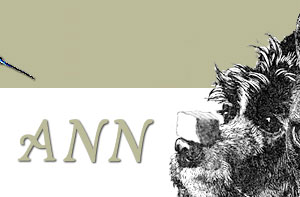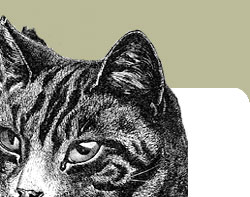| Strange as it may sound, the seemingly innocuous grape has proven very deadly for a number of dogs and cats throughout the last decade. This is one of the many problems tracked and researched by the Animal Poison Control Center (APCC) located in Urbana, Ill.
According to Dr. Jill Richardson, a veterinarian at the Center, the APCC started noticing a trend with grape toxicity six years ago, when two Jack Russell terriers developed kidney failure after eating a large number of grapes.
"This incident prompted us to start looking into the APCC database for records of previous poisonings with grapes. We found that over the past 10 years there have been sporadic cases of toxicity associated with both grapes and raisins," she says.
A trend has been difficult to establish because toxicity seems to occur with grapes grown commercially or in backyard gardens. To add to the confusion, many dogs and cats that eat grapes show no signs whatsoever.
In an attempt to discover the source of the toxicity, the APCC team had the grapes analyzed for many sources of toxicity, including heavy metals, vitamin D derivatives, herbicides, and insecticides. "Every test came back negative," says Dr. Richardson. "Luckily there has never been a case that has resulted from ingestion of just one grape or raisin. The best advice that we can give so far is to prevent your pets from eating grapes and raisins."
The case of the killer grapes is just one of the ways APCC serves the public, veterinarians, and animals everywhere. The center's hot line also fields questions from pet owners and veterinarians regarding the toxicity of various substances. "This service can often make the difference between life and death," says Dr. Richardson.
The center started in 1978 at the University of Illinois College of Veterinary Medicine in Urbana when Professor William Buck, a pioneer in the field of clinical toxicology, saw an opportunity for his resident students to learn by answering calls about various toxicity cases. As information about this service began to spread, the call volume began to rise dramatically. Over the course of the next few years the students began to wear beepers to accommodate the calls.
Eventually Dr. Buck established an official hotline funded by the University of Illinois. The number of calls received by the hotline continued to rise, and people began to call the hotline from across the United States. "This was the first animal poison control center staffed 24 hours a day," says Dr. Richardson.
In 1996, the Animal Poison Control Center became part of the American Society for the Prevention of Cruelty to Animals, but it is still an allied agency with the University of Illinois. It is funded through consultation fees charged to individual callers and through corporate accounts.
The individual charge for a consultation is $45. "This fee is charged only once per case, so if we need to talk to multiple people (the owner and the veterinarian, for instance) over the course of treatment, there is only one charge," says Dr. Richardson. Corporate accounts, e.g., for companies that make anti-freeze, are established to cover calls related to specific products.
APCC has about 600,000 cases in its database from which information can be accessed very quickly. This makes it possible to help veterinarians diagnose and treat toxicities quickly, and where poisoning is concerned, timing is often critical.
If you have any questions regarding grape toxicity, contact your local veterinarian. If you think that your pet may have been poisoned or you have any other questions regarding the APCC, you can contact them at 1-888-4ANI-HELP (1-888-426-4435) or visit the Web site at www.napcc.aspca.org.
Reprinted with permission
Office of Public Engagement
2001 S. Lincoln Ave.
Urbana, Illinois 61802 Phone: 217/333-2907
Jennifer Stone
Information Specialist
University of Illinois
College of Veterinary Medicine
Pet Columns | 

